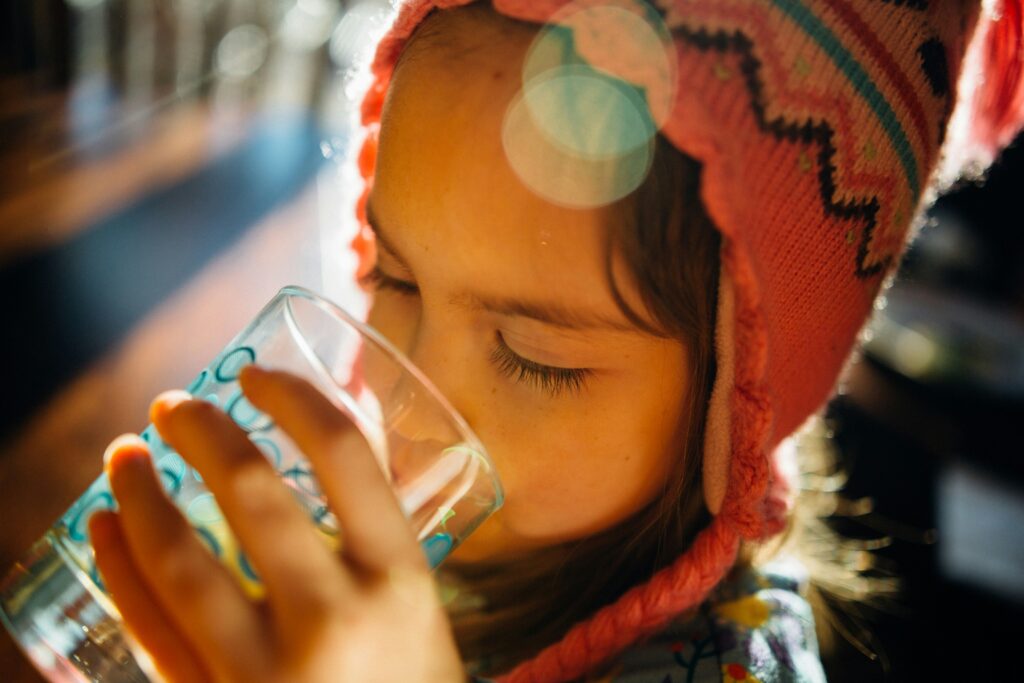The First Sign: A Call for Help
Imagine waking up on a hot summer afternoon: the sun is scorching, and you can feel its heat on every pore of your skin. You feel almost disconnected from reality.
It’s not just heat it’s a real call for help: your body is speaking to you.
That sensation of lethargy is actually one of the first signs of dehydration, a condition in which more fluids are lost than are taken in.
The Vital Role of Water
Water is an essential element for human survival: without it, an adult can survive for about 3 days, with a maximum of 5–7 days in exceptional conditions (according to WHO and CDC data). This limit can vary significantly depending on environmental temperature, physical activity level, and overall health status.
Water, in fact:
- Regulates Body Temperature
- Transports nutrients and oxygen
- Supports digestion
- Removes toxins
- ● Lubricates joints and protects sensitive tissues
The Different Types of Dehydration
Dehydration can occur in various ways, for different reasons, and in varying degrees of severity
There are three main types, each with specific characteristics and implications:
- Hypotonic Dehydration – Occurs when the body loses more electrolytes (minerals) than water. It is common in people who sweat heavily and rehydrate only with water Causes weakness, nausea, and muscle cramps.
- Hypertonic Dehydration: Happens when more water is lost than salts. Leads to intense thirst, dry mucous membranes, and irritability.
- Isotonic Dehydration: Involves a balanced loss of both water and electrolytes, as happens with vomiting, diarrhea, or hemorrhages. The main risk is reduced circulating volume and a drop in blood pressure.
- Understanding these differences is essential to take targeted action and prevent a seemingly minor condition from becoming critical.
Sweat and the Risk of Collapse
During physical activity, the body loses fluids through sweating, and without adequate hydration, collapse can occur. For this reason, when exercising it is always recommended if not necessary to carry a water bottle to stay hydrated.
In sports, dehydration exceeding 2% of body weight can impair strength, endurance, and coordination.
Even a hot day can accelerate this process, and many medical conditions can worsen the person’s state. Elderly people, children, and patients with kidney failure are particularly vulnerable.
The Effects of Dehydration
Dehydration affects individuals in various ways, both physiologically and psychologically.
Water as the Engine of Our Actions
The human body is made up of about 60% water, and without fluids, we become weak and vulnerable. When our body asks for help, the eyes sink, seeking shelter from the light and becoming extremely sensitive. The lips crack; without water, they become dry, and speaking becomes an effort.
Dehydration contributes to severe headaches, while the heart rate increases, sometimes leading to fainting.
The National Kidney Foundation warns that even mild, repeated dehydration can contribute to the formation of kidney stones.
In acute phases, orthostatic hypotension, tachycardia, and muscle cramps may occur.
In extremely severe situations, vital organs such as the kidneys, liver, and brain are affected.
The Impact of Water on the Mind
The brain also suffers, being essential for maintaining chemical balance and proper neuron function.
In a state of dehydration, staying focused on something whether work, a movie, or a simple conversation becomes exhausting; daily life becomes frustrating.
Staying sharp becomes difficult:
- Decreased concentration
- Mental confusion
- Impaired short-term memory
Studies, such as those published in the Journal of Nutrition, show that even a 1–2% reduction in body water can lower cognitive performance. This happens because the brain becomes more prone to mood changes, making it easy to swing from one emotion to another.
A dehydrated person may experience severe mental confusion, as a lack of fluids directly impacts clarity, making it difficult to make decisions and assess situations.
Even a minimal drop in fluid levels can affect cognitive performance, especially in situations requiring quick thinking and short-term memory.
How to Avoid Dehydration
The first sip of water after hours in the heat is like opening the windows in a closed room: the air starts circulating again, and we finally begin to feel better. Rehydrating means restoring harmony to the body both physically and emotionally.
Rehydration can simply be done by drinking water, or, in more critical situations, by taking saline solutions. Sports drinks or balanced electrolyte solutions are useful during high-intensity activity.
Food can also help in the mission to rehydrate:
A juicy slice of watermelon, a plate of cucumbers or tomatoes ensures slower but longer-lasting fluid absorption than water. Fruits like melon, strawberries, and oranges have over 90% water content.
Hydration for Mind and Body
In conclusion, drinking water is not just an act of caring for the body, but also a priority for mental health. Clarity, emotional balance, and cognitive performance strongly depend on proper hydration. A full water bottle can be our silent yet precious ally to face the day with more energy and serenity.



